Philippa York analysis: A Tour de France like this has been a long time coming
'Team Ineos have been subjected to other teams' tactics'
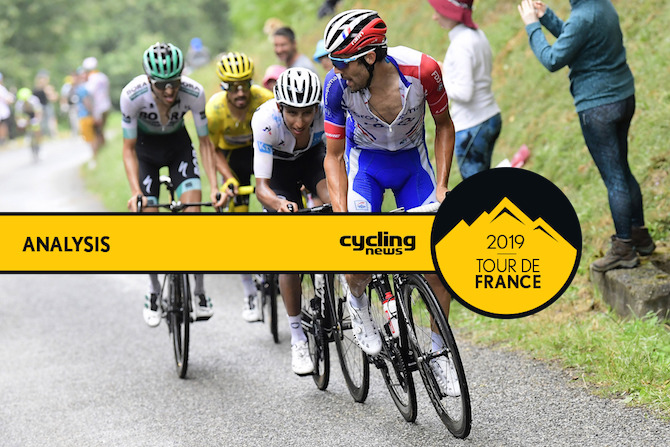
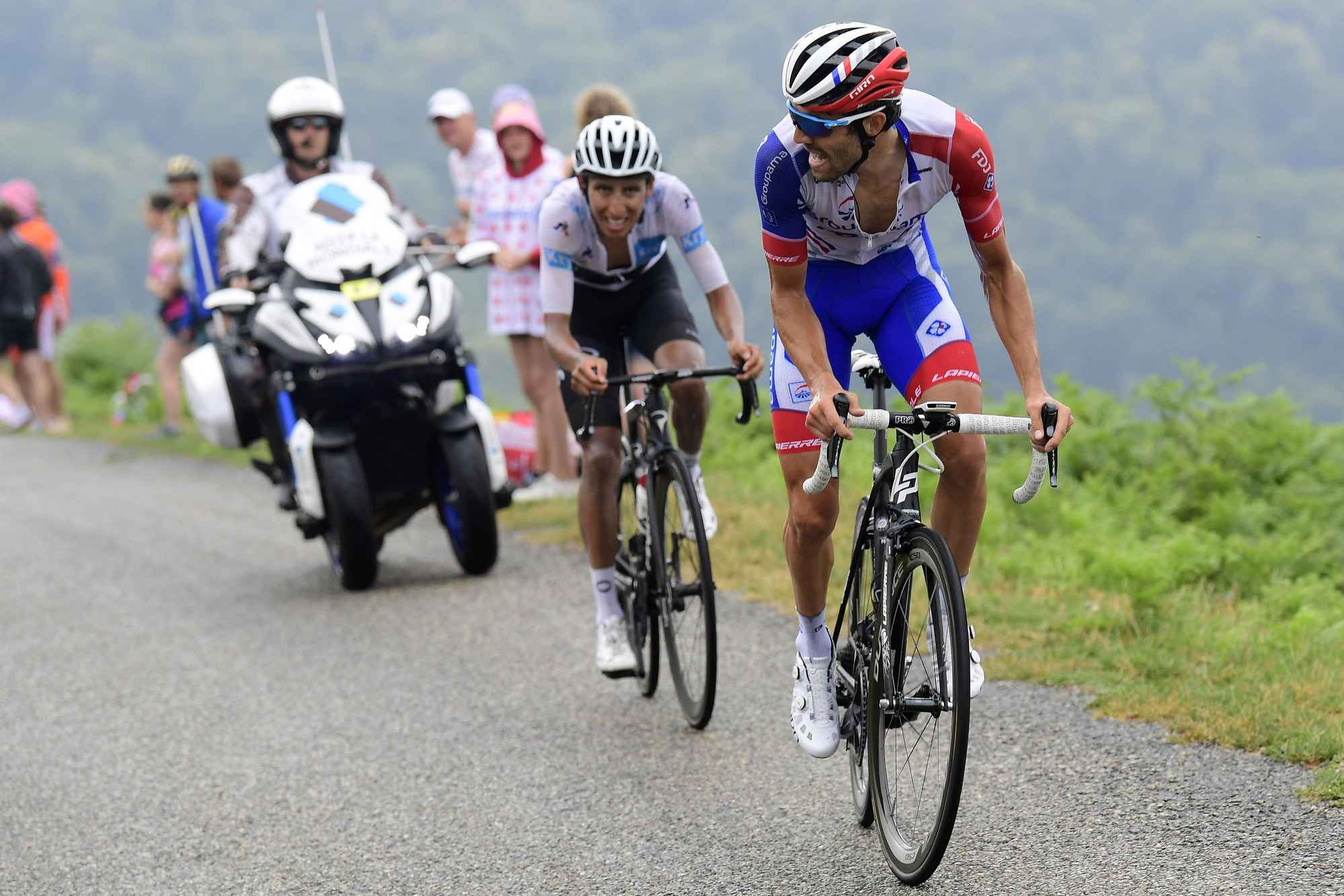
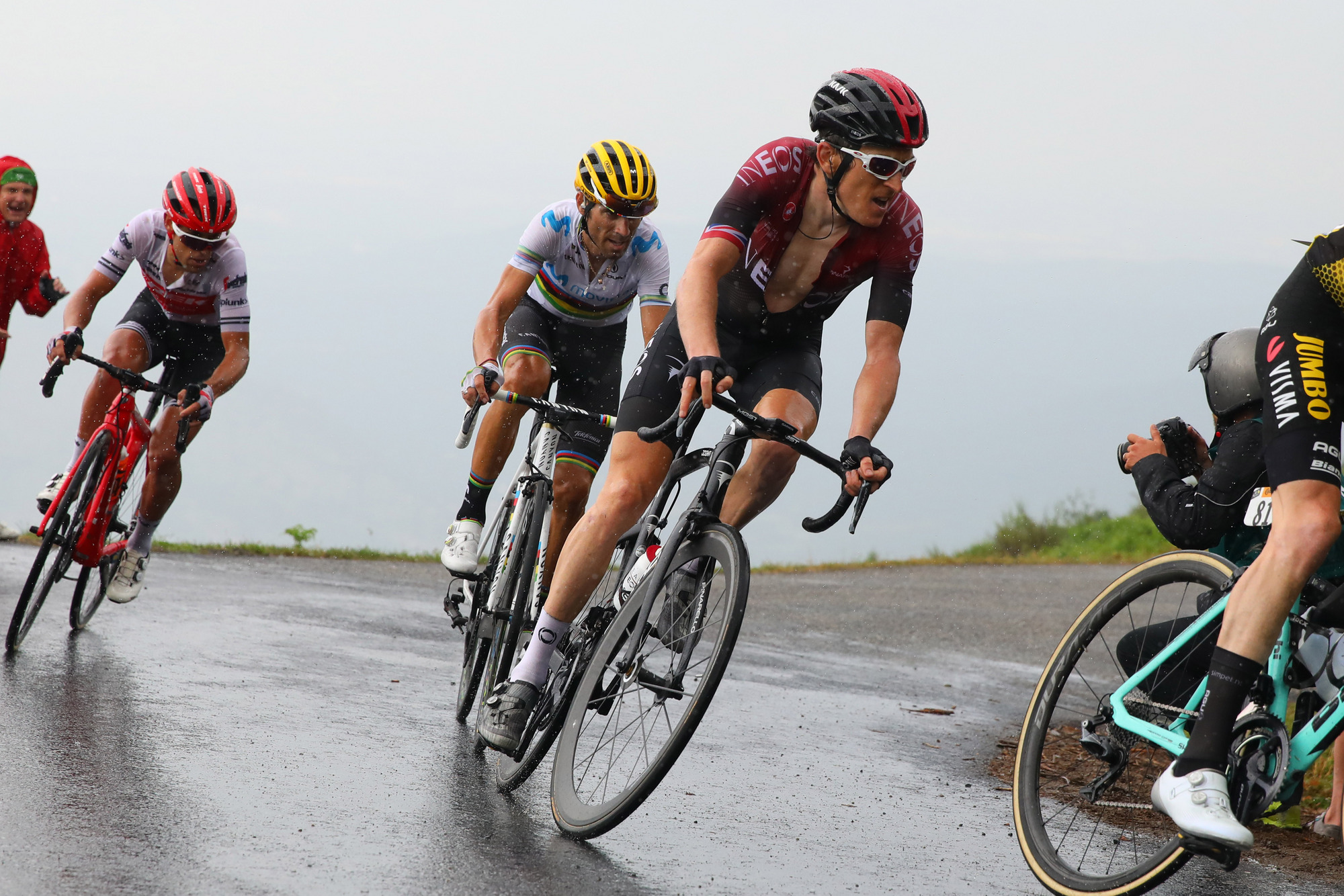
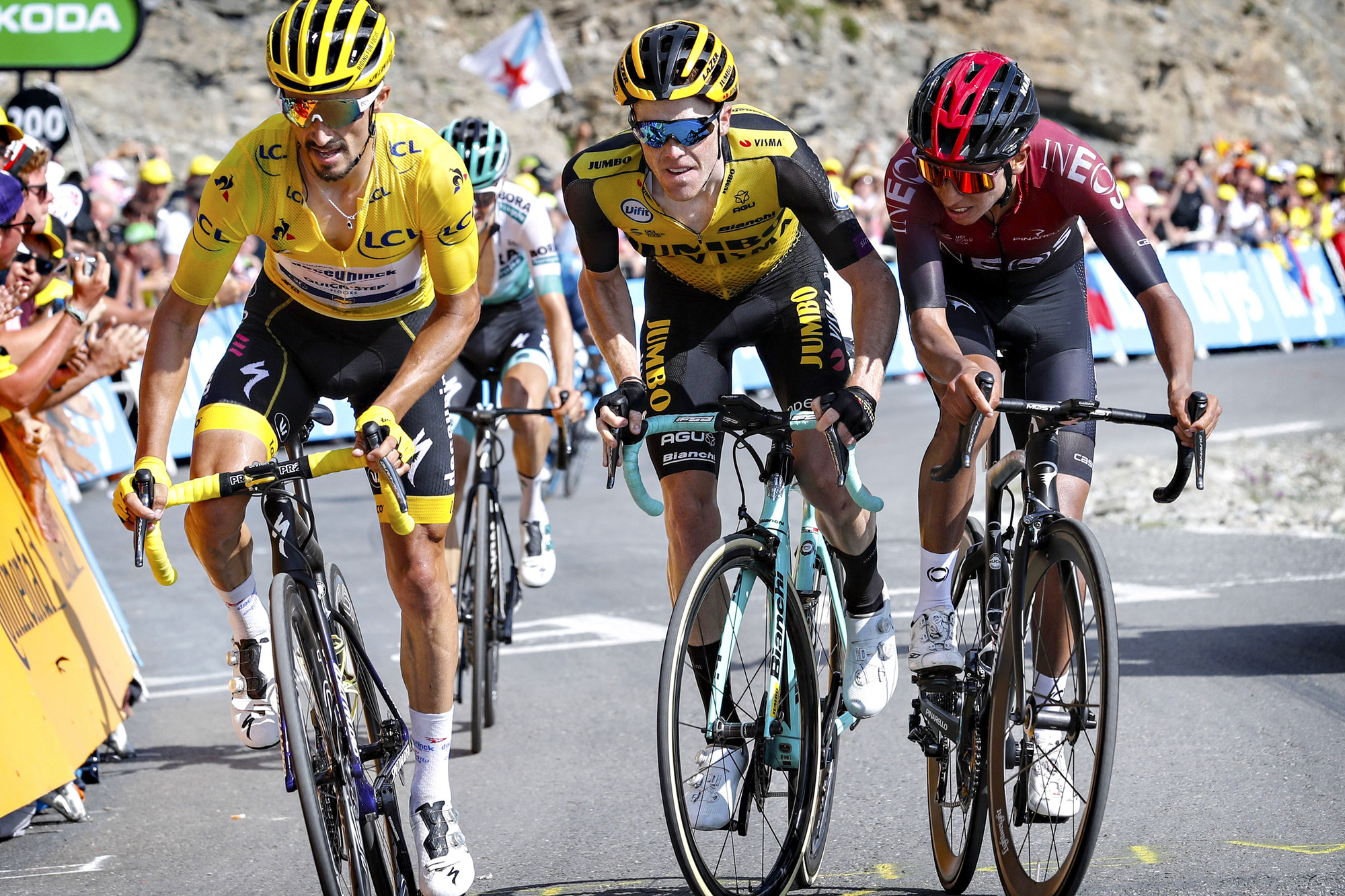
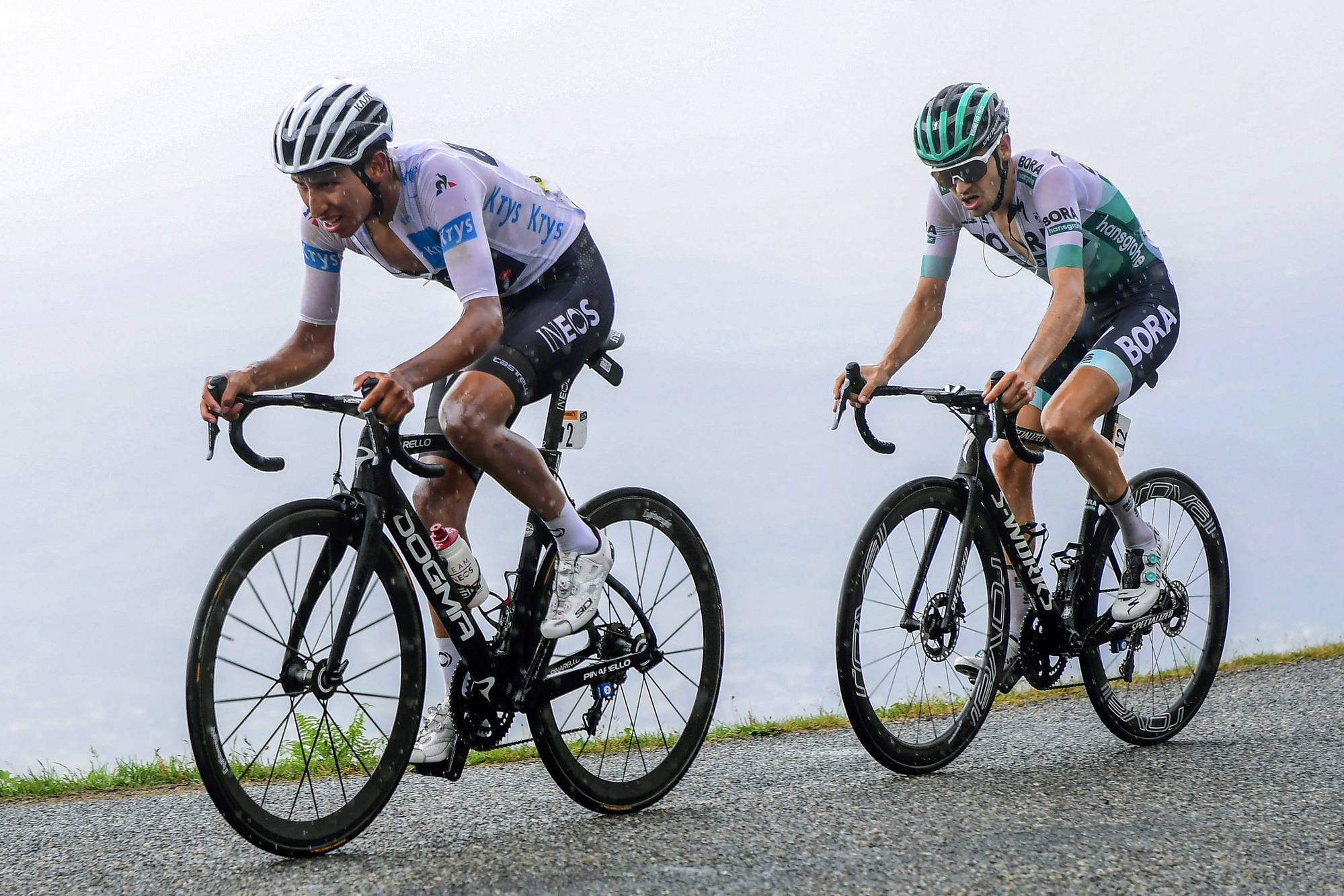
Just as organiser ASO had hoped when they planned the final week of the 2019 Tour de France, the race is wide open ahead of the final showdowns in the Alps.
In fact, nothing has been decided in terms of the podium places as any of the current top six riders could win, finish on the podium or fall by the wayside as the big Alpine stages loom into view.
Of the teams involved in the fight for the GC honours, only Team Ineos and Jumbo-Visma have recent history in controlling and dictating how a Grand Tour is conducted. The Deceuninck-QuickStep management haven't had a Tour contender for years, and Bora-Hansgrohe have usually concentrated on stage wins and the points jersey competition. Groupama-FDJ have some experience of three-week strategy and planning, but it's been a while since they were at the pointy end of the Tour with real hopes, so the uncertainties of what Julian Alaphilippe, Geraint Thomas, Steven Kruijswijk, Thinaut Pinot, Egan Bernal and Emanuel Buchmann might do are matched by their respective teams' possibilities.
Realistically, heading into the last of the mountains, the two strongest teams are Team Ineos and Jumbo-Visma, with FDJ operating at a slightly lower level. However, it won't be as simple as the first two fighting it out with the French squad waiting to pounce on any slip-ups as both Ineos and Jumbo-Visma have elements in their composition that limit their options.
Top six to battle it out
Starting with defending champions Ineos, they are still managing the Thomas and Bernal situation with a degree of flexibility. If Bernal can cover the attacks or go on the offensive himself, then that takes the pressure off Thomas to some degree, but the imposing back-up that the team enjoyed in previous editions hasn't been there in the big mountains. Poels and Kwiatkowski aren't as impressive as they can be, although the Polish rider has done a lot of work in the flatter stages protecting his leaders. They don't seem to have a climbing domestique they can call on in the final half hour of racing to set a high tempo or chase down attacks, either.
You could say with Thomas and especially Bernal in the select front group that they have good options, but as a team they haven't been capable of doing what they usually do – namely putting everyone in the red and then delivering the decisive blow when the domestiques are spent. It's been more a case of them being subjected to other teams' tactics than the contrary.
As for Jumbo-Visma, they enter the decisive phase of the race with three riders who will have a direct influence on what speed the mountains are ridden at. Kruijswijk can rely on George Bennett and Laurens De Plus to be with him, but more than that, they can set a tempo that sees their rivals pinned in their place or not able to follow. The fact the Dutch squad can be sure of having three riders survive the first few big accelerations is crucial to giving Kruijswijk options in how to race the coming days.
Get The Leadout Newsletter
The latest race content, interviews, features, reviews and expert buying guides, direct to your inbox!
In the same way that Sky used to control the pace, Kruijswijk can ask them to ride a strong tempo and then attack, or use his men to bring back an attack. Or, if he's struggling, then limit his losses. It's unlikely any of the top six will be consistently the strongest over the three big Alpine stages, so having all eventualities covered is a bonus for the Dutch team.
Groupama-FDJ find themselves with the rider everyone is watching: Thibault Pinot. But crucially they also have David Gaudu, who we have seen do a remarkable job of supporting his leader deep into the finale of the mountain stages. For Pinot, this holds extra importance as he knows he can rely on Gaudu without question. The younger Frenchman has shown himself to be up to the task of either riding a high tempo or chasing down attackers, and that is a luxury at this level. Also Marc Madiot's squad have been lifted by the performance of Pinot, and they haven't been afraid to take control of the race long before the last climbs.
Pinot has shown himself to be the strongest climber out of the GC guys, and with two summit finishes to go, he looks in the best position to challenge for the victory. But he'll have to chose his moments wisely as there are some major passes to negotiate and the forecast heat might not be in his favour.
Bora-Hansgrohe's Emanuel Buchmann remains the unknown quantity in the equation. Clearly in super form and able to climb with the best, he doesn't have any team support to lean on. He's raced smart and watched the others beat each other up before placing his moves, and it'll be interesting to see who he decides to mark in the Ineos-Jumbo-Pinot conundrum. He could well be a valuable ally for any one of them given the right circumstances.
Alaphilippe still leads
Of course, in all of this speculation we're discounting current race leader Julian Alaphilippe (Deceuninck-QuickStep). Everyone expects him to blow one day, and the cracks did show before the rest day, but if he recovers the form that took him to the top of the Tourmalet just behind Pinot, then all the team tactics and scenarios will be useless.
Then there's the curious case of Movistar and the inner squabbling between their leaders, of which there were reportedly only two: Mikel Landa and Nairo Quintana. But Alejandro Valverde is only six seconds behind Landa, despite being at his service.
The reality for Movistar is that, yes, Landa is one of the strongest in the third week of racing and, yes, he's not afraid to attack from distance, but he's five minutes down, and the other teams have riders who can control anything he does deep into the race. Maybe the Spanish squad will chase the teams classification, but why they're trying to dictate the racing when they aren't in the GC is a wonder to many.
Quintana has cracked physically, and mentally he doesn't seem much better, so putting Andrey Amador and Marc Soler to work has been, and will be, pointless. Unless they are planning a major play from Landa, which might see a stage win, he isn't going to be allowed to take five minutes back and re-enter the podium battle. They have messed up again.
The great thing about these three upcoming stages in the Alps is that nothing is decided and no one is certain of what the final outcome will be. And it's been a long time since we've been able to say that about the Tour de France.
Sponsor message
Born in the Italian Dolomites, Sportful has been making athletes faster, more efficient and better protected since 1972. Official apparel supplier to Team Virtu Cycling, Bora-Hansgrohe and Bahrain Merida.
The same Pro Issue apparel, which includes our BodyFit Pro and Fiandre lines, worn by Marta Bastianelli, Peter Sagan and Vincenzo Nibali is available to purchase by all cyclists.
BodyFit Pro; a form fitting design with a focus on enhanced aerodynamics was created specifically for the rigours of pro bike racing. Our versatile Fiandre line uses proprietary technology to keep you dry and comfortable in inclement, variable weather conditions.
Sportful leads the market with innovative and technical apparel so you can experience those unforgettable moments, your very best days on a bike. For more details visit sportful.com. Follow the ride on instagram @sportful.
Philippa York is a long-standing Cyclingnews contributor, providing expert racing analysis. As one of the early British racers to take the plunge and relocate to France with the famed ACBB club in the 1980's, she was the inspiration for a generation of racing cyclists – and cycling fans – from the UK.
The Glaswegian gained a contract with Peugeot in 1980, making her Tour de France debut in 1983 and taking a solo win in Bagnères-de-Luchon in the Pyrenees, the mountain range which would prove a happy hunting ground throughout her Tour career.
The following year's race would prove to be one of her finest seasons, becoming the first rider from the UK to win the polka dot jersey at the Tour, whilst also becoming Britain's highest-ever placed GC finisher with 4th spot.
She finished runner-up at the Vuelta a España in 1985 and 1986, to Pedro Delgado and Álvaro Pino respectively, and at the Giro d'Italia in 1987. Stage race victories include the Volta a Catalunya (1985), Tour of Britain (1989) and Critérium du Dauphiné Libéré (1990). York retired from professional cycling as reigning British champion following the collapse of Le Groupement in 1995.
